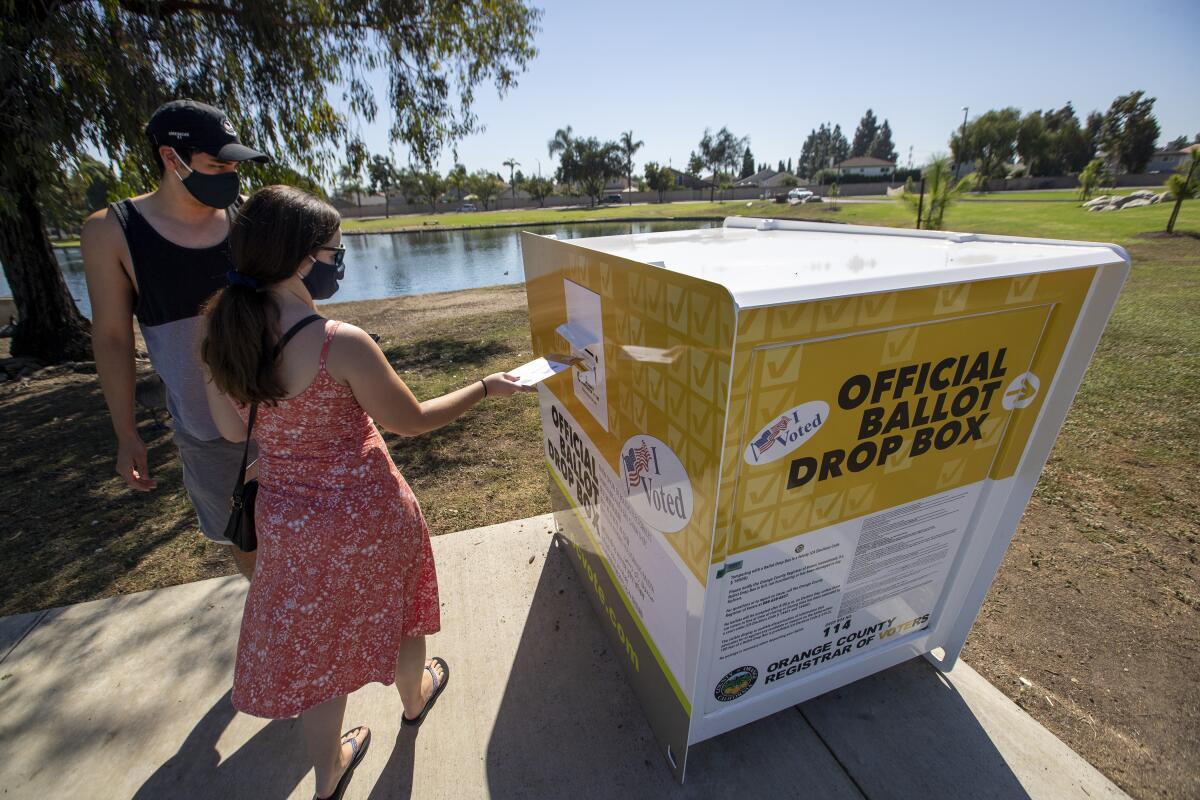California ballot proposal could make more government records public

- Share via
SACRAMENTO — An initiative proposed for the 2024 ballot could reform California’s public records laws and force politicians to disclose more information — a move supporters say will curb government corruption and keep voters in the know.
The “Government Transparency Act” was filed with the California attorney general’s office on Wednesday and, if approved by voters, would require lawmakers to provide details about their meetings with lobbyists, political fundraising events and investigations of misconduct.
The measure would also set stricter standards for government agencies, mandating they more quickly and comprehensively provide documents to the public.
“Access to information concerning the conduct of the people’s business is a fundamental and necessary right of every person in this state,” reads the proposed ballot measure language.
The initiative is in the early stage of the state’s ballot measure process and must collect enough supportive signatures in the next several months to qualify for next November’s ballot, at which voters will decide its fate.
The proposal is sponsored by Consumer Watchdog, an influential nonprofit that has had success in shaping California policy before, sponsoring a landmark ballot measure that rolled back insurance rates and fighting for legislation to protect financial and internet privacy and healthcare rights.
Jerry Flanagan, litigation director for Consumer Watchdog, said that “what the government is not telling you can be bad for your health,” pointing to the California Public Utilities Commission’s resistance to release public records regarding deadly wildfires.
It’s the latest volley in an ongoing tussle between city officials and community activists who have used the public records law to obtain information about police.
“That kind of lack of transparency leads to inaction, which leads to devastating results,” Flanagan said Wednesday. “The public understands transparency in this day and age, they know why it is important.”
Included in the proposal’s many provisions is a requirement for state agencies and legislators to retain records for at least five years, an attempt to prevent destruction of records that could “expose government wrongdoing.”
The measure would also publicize more details of sexual harassment investigations in the state Legislature, a process that has been criticized as being opaque and slow-moving since the start of the #MeToo movement.
A survey of 800 likely voters in April conducted on behalf of Consumer Watchdog showed that about 70% supported the measure.
But the measure must first acquire nearly 550,000 signatures of registered voters to qualify for the ballot — a process that will cost money to pay petitioners to circulate the proposal.
Flanagan said Consumer Watchdog is budgeting $5 million for the qualification process but declined to say how much has been raised so far, citing pledges of donations yet to be realized.
Although some agencies and elected officials are sure to grimace at the proposal — which could lead to time-consuming public records retrievals — Flanagan doesn’t expect much public opposition.
“Some people may hate the idea but would they campaign against it? It’s hard to imagine legislators would want to publicly come out against a measure like this, and state agencies are barred from taking a position on a ballot,” he said.
More to Read
Sign up for Essential California
The most important California stories and recommendations in your inbox every morning.
You may occasionally receive promotional content from the Los Angeles Times.















